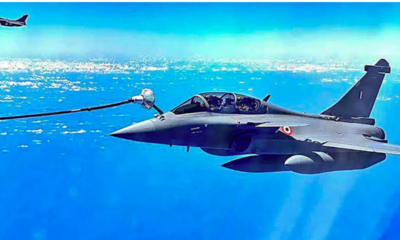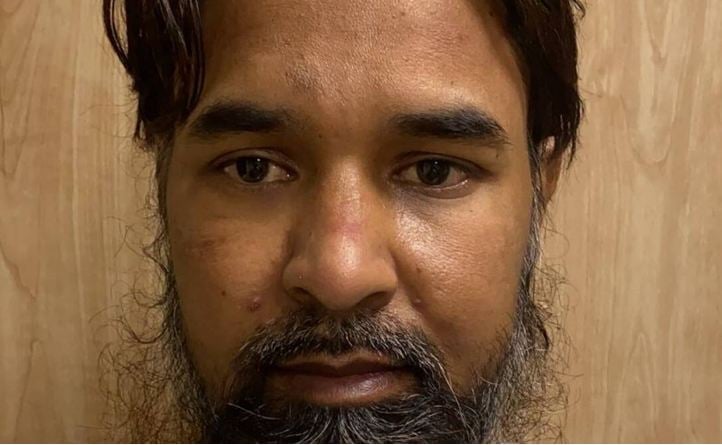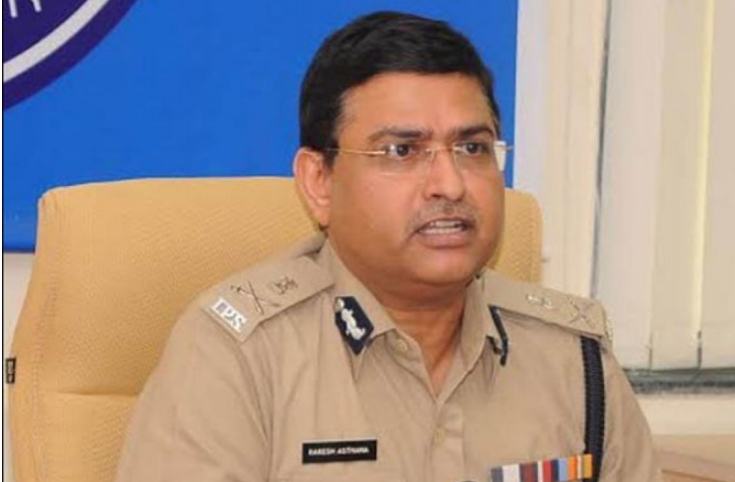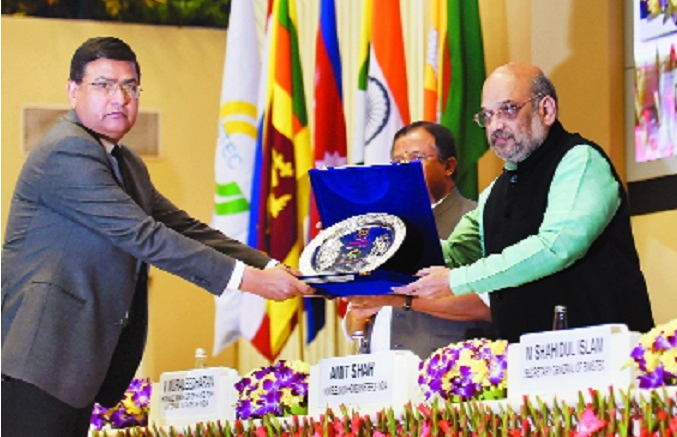Latest Politics News
CBI director Alok Verma’s removal: Select Committee’s decision questioned, other doubts
Published
7 years agoon
By

The statement of the judge who supervised Central Vigilance Commission (CVC) enquiry against the now ousted CBI Director Alok Verma, the files of cases on CBI director’s table for decision on a probe, Verma’s orders that were reversed as well as the haste with which he was removed – all these have led to more questioning of the 2:1 decision of the Prime Minister Narendra Modi-headed three-member Select Committee.
Several issues stand out.
* There is the question that if – as the PM-led high powered committee found – there were serious allegations against Alok Verma, why was he merely transferred and not suspended pending an enquiry?
Was it to avoid taking a similar action against CBI special director Rakesh Asthana who, at least now that the Delhi High Court has upheld the FIR against him, should be suspended and not remain on forced leave simply divested of his powers?
* Questions have been raised about the role of the CVC and the background to its report against Verma. According to a report by The Wire, CVC KV Chowdary had asked Alok Verma to withdraw the adverse comments he had made on the record in his deputy, Rakesh Asthana’s annual confidential report, or ACR.
Citing sources close to Justice AK Patnaik, The Wire report says that Chowdary made this unusual request assuring him that “everything will be ok” for the former director if he does that.
Also Read: Alok Verma first CBI director to be removed by Select Committee’s 2:1 decision
Details of this meeting were provided in writing by Verma to Justice Patnaik.
Chowdary’s request to Verma came when the fight between the two officers had broken out in the CBI and when Verma had to take a call on making top PMO bureaucrat Bhaskar Khulbe, an accused in the coal scam, something that Asthana had resisted.
Asthana’s complaint to the CVC against Verma started after the latter’s refusal to withdraw those adverse comments in ACR. His complaint then formed the basis of action against Verma.
As revealed by Justice Patnaik, the entire basis of the CVC’s report against Verma is a complaint by Asthana, against whom six inquiries were pending in the CBI.
It is not clear who had asked the CVC to intercede on behalf of Asthana but officials in the CBI point out how the agency’s investigation into the role of top PMO officials had triggered anxieties in the highest levels of government, The Wire report said.
CVC had sided with Asthana earlier as well. When a controversy had broken out on his appointment as special director in the CBI and it had become clear that Alok Verma was going to object to his selection in writing, Chowdary pushed through Asthana’s appointment. Officials say that top PMO bureaucrat PK Mishra had summoned CVC Chowdary, and directed him to ensure Asthana was appointed, reported The Wire.
Later, in October 2018, when the CBI registered an FIR against Asthana, the CVC raised procedural objections – arguments which, said lawyers, hold no water, according to The Wire.
The CVC himself is seen as an officer mired in controversy. His name had surfaced in the former CBI chief Ranjit Sinha’s visitors diary scandal. Chowdary, after being appointed CVC, was also spotted in the office of Nikhil Merchant, a businessman believed to be close to the Prime Minister.
A PIL against his appointment was filed in the Supreme Court by the NGO Common Cause, which questioned his fitness for the anti-corruption job given his earlier reluctance, as a top income-tax official, to investigate the contents of incriminating documents recovered by his department from the corporate offices of the Birla and Sahara group. Those documents spoke of payments to various individuals or entities, including ‘Guj CM’.
* The very action of PM-led committee in removing Verma from CBI director’s post has been questioned by no other than the retired Supreme Court judge, Justice (retired) AK Patnaik, who was entrusted the task by the apex court to supervise the CVC enquiry on basis of which the CBI director was ousted.
Patnaik told The Indian Express (IE) that there was “no evidence of corruption” against Verma, and “what the CVC says cannot be the final word”.
Patnaik was also critical of “the very, very hasty” decision of the PM-led selection committee to remove Verma from the CBI Director’s post over charges of corruption and dereliction of duty Thursday, two days after he was reinstated by the Supreme Court, the IE report said.
Justice Patnaik told IE: “There was no evidence against Verma regarding corruption. The entire enquiry was held on (CBI Special Director Rakesh) Asthana’s complaint. I have said in my report that none of the findings in the CVC’s report are mine.”
In a two-page report to the Supreme Court bench headed by Chief Justice of India Ranjan Gogoi, Justice Patnaik stated that “the CVC forwarded to me a statement dated 9.11.2018 purportedly signed by Shri Rakesh Asthana.”
He added: “I may clarify that this statement purportedly signed by Shri Rakesh Asthana was not made in my presence”.
Justice Patnaik told IE: “Even if the Supreme Court said that the high-power committee must decide, the decision was very, very hasty. We are dealing with an institution here. They should have applied their mind thoroughly, especially as a Supreme Court judge was there. What the CVC says cannot be the final word.”
He also confirmed Verma’s claim in his letter Friday to the Department of Personnel and Training that the findings of the CVC report were not his.
“The Supreme Court entrusted me with a responsibility of supervising, so I ensured my presence, the Sana evidence etc, and I ensured that principles of natural justice were applied. Verma had access to all the documents and got a personal hearing. The enquiry was completed in fourteen days, it was all done. Thereafter, it was for the Supreme Court to decide. The report was 50 pages but there were 1,000 pages of annexures,” he said.
On January 8, when the Supreme Court set aside the October 23, 2018 orders of the CVC and the government divesting Verma of his powers and functions pending inquiry, the order made no mention of Justice Patnaik’s findings.
The selection committee cited the CVC report and “the extremely serious nature of observations made by the CVC against Verma” to remove him from the post of Director.
* The backdrop to “very very hasty” convening of the PM-led committee and the decision also raises suspicion.
As soon as interim CBI director M Nageswar Rao appointed by Modi government was back in office after Verma’s ouster, he reversed all decisions taken by the CBI director. Apart from the transfers of officials, his order also negated the file signed by then Director Alok Verma in a coal scam case, allegedly involving a senior IAS officer posted in Prime Minister’s Office (PMO).
The CBI order declared four office orders issued on Wednesday and Thursday, after Verma was reinstated by the Supreme Court as CBI Director, as non-est (does not exist). It said, “consequently, all actions in pursuance thereof by all concerned are also declared hereby as null and void”.
This nullified one of the files signed by Verma on Wednesday which could have led to the chargesheeting of Bhaskar Khulbe, a West Bengal cadre IAS officer, in a coal scam case.
Currently Secretary to the Prime Minister, Khulbe is alleged to have been involved in the allotment of coal blocks to Ramsarup Lohh Udyog Limited in the Moira-Madhujore block of West Bengal. Khulbe was then Advisor, Industries to the West Bengal government. His name had figured in CBI investigations in the coal scam and had parallels with the case of former Union Coal Secretary HC Gupta.
There are other filed reported to be on CBI director’s table for a decision on probe. Among them is the complaint about Rafale deal, filed by former union minister Yashwant Sinha and Arun Shourie and lawyer Prashant Bhushan.
Some other cases mentioned in a IE report were:
– A complaint against alleged irregularities in the Rafale fighter deal with France: The verification process of the complaint was on in the agency and, sources said, “a decision was to be taken”. The 132-page complaint was received by Verma on October 4, and had been filed by former Union Ministers Yashwant Sinha and Arun Shourie and lawyer Prashant Bhushan.
– The CBI has been probing the role of highly-placed individuals in the Medical Council of India (MCI) bribery case, which implicated retired High Court judge IM Quddusi. The chargesheet against Quddusi, sources said, had been prepared and was ready for Verma’s signature.
– The case of Justice SN Shukla of Allahabad High Court, who was sent on leave following allegations of corruption in medical admissions, had been identified as fit for investigation. Sources said a PE had been prepared and was awaiting Verma’s signature.
– Another case being looked at by the CBI was BJP MP Subramanian Swamy’s letters to the CBI, complaining against Finance and Revenue Secretary Hasmukh Adhia.
In an edit-page article in IE, Ashoka University vice chancellor Pratap Bhanu Mehta, raising questions about the role of the authorities and institutions involved in the decision and the process, says: “The ouster of Alok Verma is another step in the cavalier destruction of institutions. Each step to use the law to resolve the CBI crisis has led not to the reinstatement of the rule of law but the extension of an arbitrary rule by law.”
Also Read: Delhi High Court rejects CBI Spl Director Rakesh Asthana’s plea for quashing cases
Mehta said the texts of these proceedings gain their potency from the context and subtext. The context, he said, is twofold:
The first is the growing institutional murkiness in the handling of the Rafale deal. Whatever the truth of it may be, the Supreme Court botched up the matter by its ill-argued and factually-incorrect order in the case. The bad handling of one case related to Rafale may be a mistake, but the bad handling of another case that is indirectly related to Rafale reeks of more than incompetence.
The second is the Narendra Modi government’s record with independent institutions: Its assaults on institutions ranging from the RBI to the CBI. In fact, one of the odd things that seems to distinguish Modi’s rule has been the creation of conflicts between law enforcement agencies and the executive, which often get reflected in civil wars within law enforcement agencies themselves. This was a pattern in Gujarat and is being repeated again. So this episode is yet another in a train of institutional decimations. Even if the prime minister had good reason to act as he did in this instance, the context makes his actions less than self-evidently credible.
“The biggest casualty of this affair has been the Supreme Court’s authority,” wrote Mehta. The government, on the other hand, has done nothing to allay the suspicion that any independent officer or agency that stands in the way of the government will be unceremoniously mowed down.
You may like
-


PM Modi, Macron reaffirm global strategic partnership during Delhi meeting
-


India clears Rs 3.25 lakh crore proposal to procure 114 Rafale fighter jets
-


Delhi Police arrests Pakistani terrorist living in India for past 10-15 years with forged papers
-


Delhi Assembly passes resolution against Rakesh Asthana’s appointment as Delhi Police Commissioner
-


PM’s hand-picked IPS officer gets to be Delhi Police chief with transfer of cadre four days before retirement, plus a year’s extension
-


French court begins probe in Rafale scam, Congress demands JPC
India News
Ajit Pawar’s son seeks detailed probe into Baramati plane crash
Jay Pawar has demanded a comprehensive probe and action against the aviation firm after the Baramati plane crash that killed Ajit Pawar and four others.
Published
3 days agoon
February 19, 2026
Jay Pawar, the younger son of Maharashtra Deputy Chief Minister Ajit Pawar, has called for a comprehensive and impartial investigation into the plane crash near Baramati that claimed his father’s life along with four others on January 28.
In a social media post on Wednesday, Jay Pawar raised concerns over what he described as “possible serious lapses” that may have led to the fatal accident. He asserted that the aircraft’s black box is not easily destroyed and stressed that people of Maharashtra deserve to know the complete truth behind the crash.
Demand for action against aviation company
The ill-fated Learjet 45XR aircraft was operated by VSR Ventures Private Limited. Jay Pawar urged authorities to conduct a detailed probe into the firm’s operations and sought a ban on the aviation company pending investigation.
“A detailed investigation of possible serious lapses and irregularities of the aircraft firm should be done in a detailed and impartial manner,” he said.
The crash occurred near the Baramati airstrip, resulting in the deaths of Ajit Pawar and four others.
Call for CBI probe and sabotage allegations
Jay Pawar’s statement came a day after Maharashtra Deputy Chief Minister Sunetra Pawar and leaders from the Nationalist Congress Party met Chief Minister Devendra Fadnavis to demand a Central Bureau of Investigation (CBI) probe into the accident.
Separately, NCP (SP) MLA Rohit Pawar alleged there was reason to suspect sabotage in the crash and called for a multi-agency investigation involving experts.
During a press conference last week, Rohit Pawar also questioned the past record of Captain Sumit Kapoor, who was piloting the aircraft on the day of the crash. He referred to the pilot’s previous three-year suspension for alcohol consumption.
AAIB seeking support to retrieve CVR data
The Aircraft Accident Investigation Bureau (AAIB) is conducting a detailed probe into the crash. According to the agency, special technical assistance has been sought to retrieve data from the Cockpit Voice Recorder (CVR) of the Learjet 45 aircraft involved in the accident.
The investigation is ongoing.
India News
PM Modi sends congratulatory letter to Tarique Rahman after swearing-in
Lok Sabha Speaker Om Birla handed over Prime Minister Narendra Modi’s congratulatory letter to Bangladesh Prime Minister Tarique Rahman following his swearing-in and extended an invitation to visit India.
Published
5 days agoon
February 17, 2026
Om Birla on Tuesday met Tarique Rahman and delivered a letter from Narendra Modi, congratulating him on assuming office and inviting him to visit India.
The meeting took place shortly after Rahman was sworn in as Bangladesh’s Prime Minister following his party’s victory in the recently concluded parliamentary elections.
According to details shared, Birla also spoke to Rahman over the phone to personally convey PM Modi’s congratulations.
In his letter, PM Modi extended his greetings to Rahman on the Bangladesh Nationalist Party’s win in the parliamentary elections and on his appointment as the next Prime Minister of Bangladesh.
“I extend my warmest congratulations to you on the victory of the Bangladesh Nationalist Party at the just-concluded parliamentary elections in Bangladesh and on your appointment as the next Prime Minister of Bangladesh,” the letter read.
The communication also included an invitation for the newly sworn-in leader to visit India.
India News
Navjot Kaur Sidhu says Rahul Gandhi disconnected from ground realities
Navjot Kaur Sidhu criticises Rahul Gandhi after exiting Congress, alleging corruption in the Punjab unit and predicting defeat in upcoming state elections.
Published
6 days agoon
February 17, 2026
Former Congress leader Navjot Kaur Sidhu has launched a sharp attack on Rahul Gandhi soon after her exit from the party, accusing him of being detached from ground realities and failing to address concerns within the Punjab unit.
Speaking to reporters in Coimbatore, Sidhu said that Gandhi, who serves as Leader of the Opposition in the Lok Sabha, has not worked at the grassroots level and is unaware of what is happening within the party in Punjab. She stressed that understanding “ground zero” realities is crucial for leadership and said living in a “dream world” would not help the party.
Drawing a comparison with Prime Minister Narendra Modi, Sidhu said that while Gandhi speaks well and “talks sense”, his actions do not align with his words. She claimed there is nothing personally against the Prime Minister and challenged critics to find evidence of wrongdoing against him.
Sidhu also alleged widespread corruption within the Punjab Congress leadership. She claimed she sought an appointment with Gandhi for eight months to inform him about what she described as “injustice” and internal damage to the party. According to her, party tickets had already been sold, and she warned that Congress is likely to lose the state polls next year if corrective measures are not taken.
In a direct message to Gandhi, she said that if he is unaware of developments within his own party, then he does not deserve the leadership position. She further alleged that corrupt individuals surround him while honest leaders are ignored.
Sidhu claimed that she and her family were promised key roles, including a deputy chief minister post with seven departments and a Member of Parliament position for her, but were ultimately given nothing.
Last week, Congress general secretary in charge of Punjab, Bhupesh Baghel, announced that Sidhu had been expelled from the party. The announcement followed her own declaration that she had quit.
The 62-year-old leader was earlier associated with the BJP and served as an MLA from 2012 to 2016 before joining Congress. Recently, she levelled serious allegations against Punjab Congress chief Amrinder Singh Raja Warring, claiming that ₹500 crore was being demanded in exchange for the Chief Minister’s post if the party wins the upcoming elections. She was suspended after making those remarks.
With Punjab heading towards elections next year, her allegations add to the turbulence within the state unit of the Congress.

India studying implications after US Supreme Court strikes down Trump’s global tariffs
RSS not seeking political power, focused on uniting Hindu society, says Mohan Bhagwat

PM Modi meets Sri Lankan President Dissanayake at AI summit, reviews connectivity agenda

Trump signs 10% global tariffs after US Supreme Court setback





